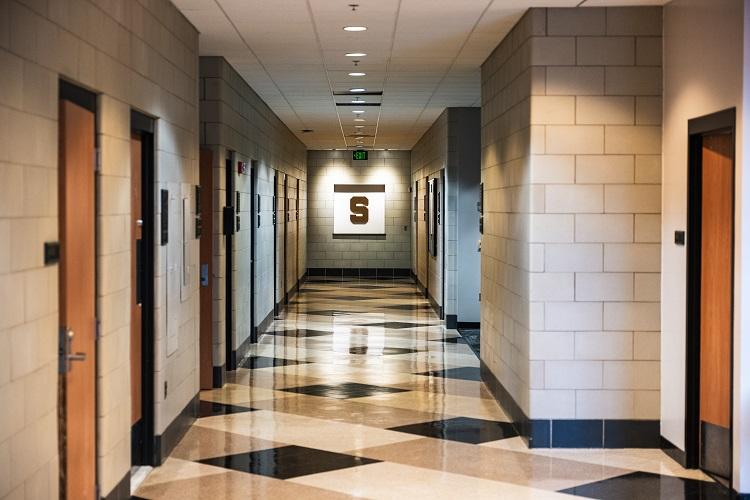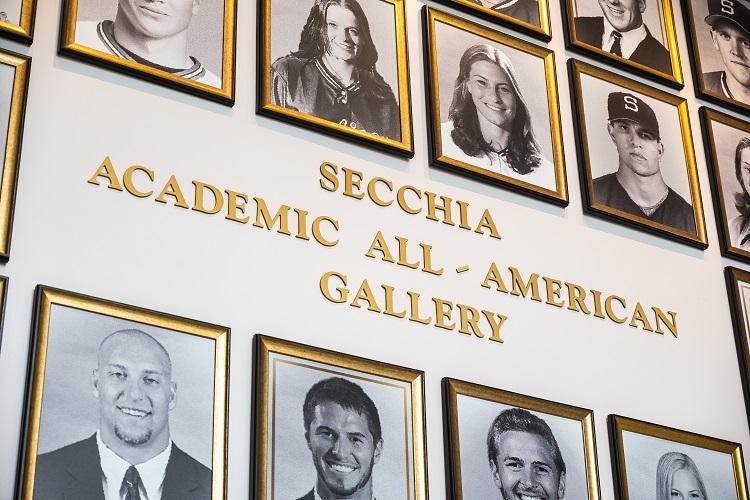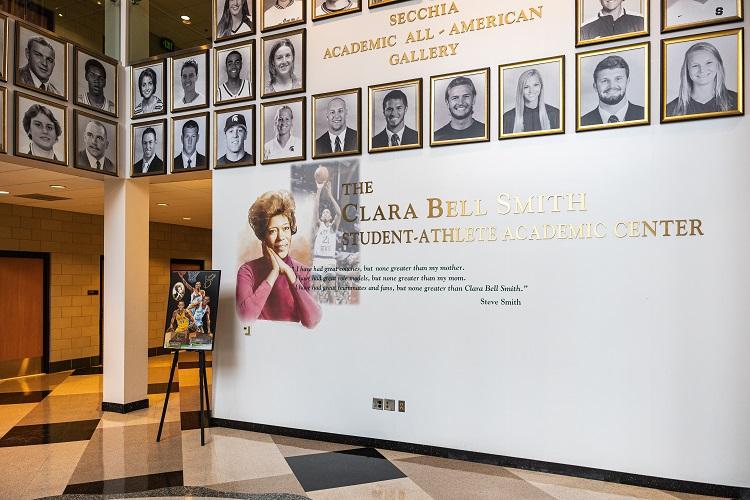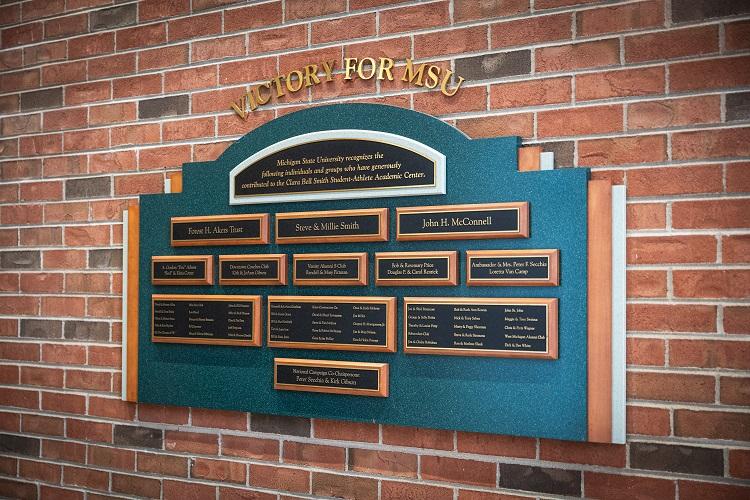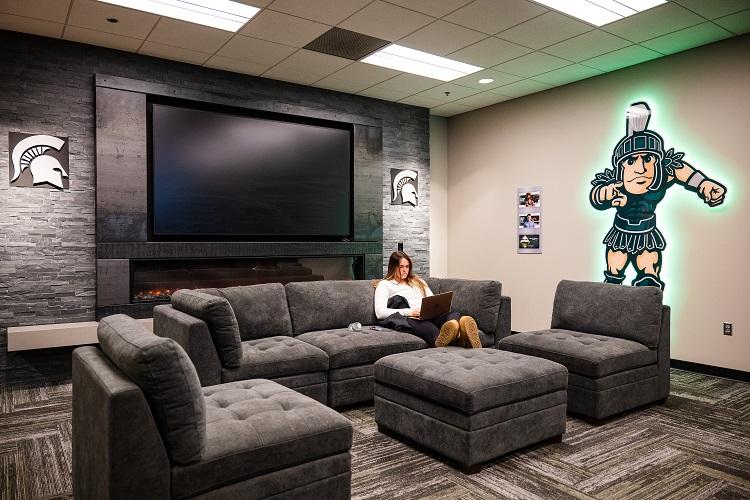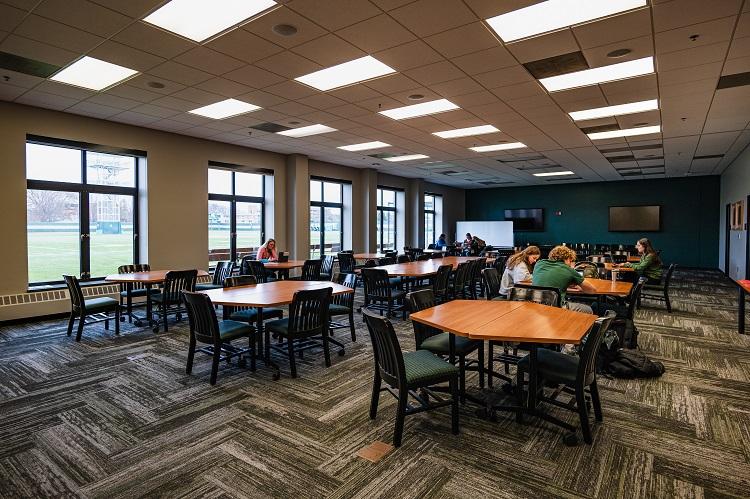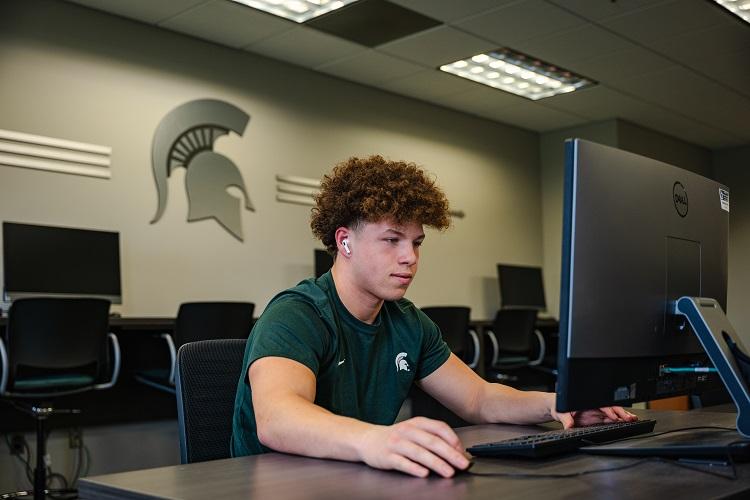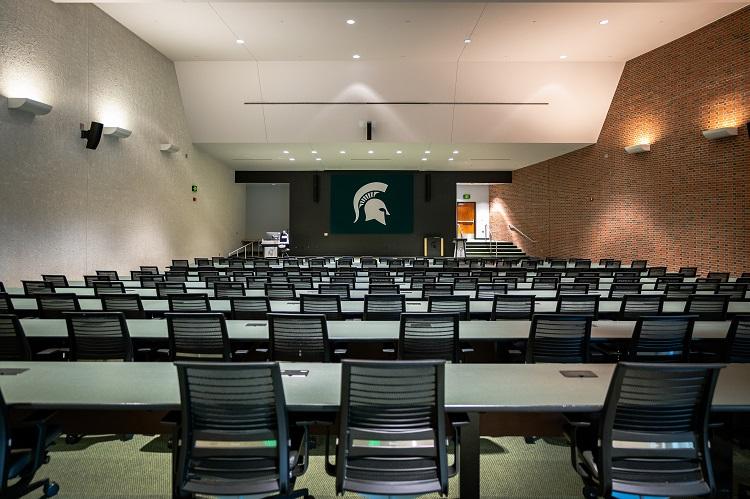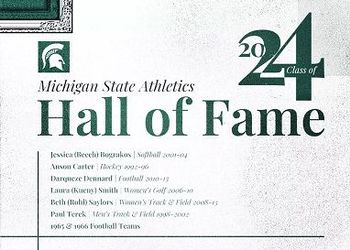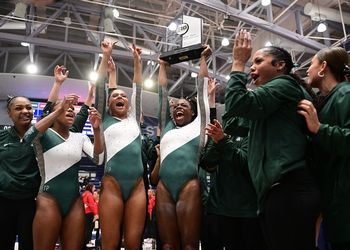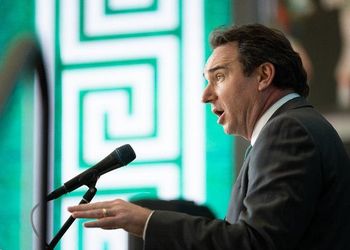Its Specialty Is Winning
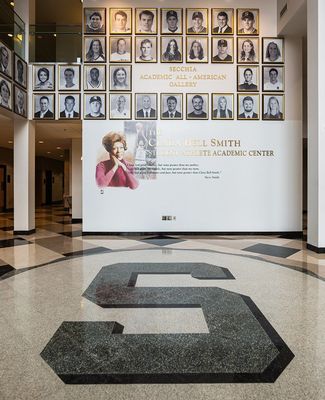
Its Specialty Is Winning
For 25 years, the Clara Bell Smith Center has been helping Spartan student athletes achieve victory—on and off the field.
May 21, 2024When the Clara Bell Smith Student-Athlete Academic Center opened in September 1998, it was a novel idea. Touted by Spartan household names Kirk Gibson and Peter Secchia, and backed by a $2.5 million gift from legendary Spartan basketball guard Steve Smith—then the largest by a professional athlete to a university—the first-of-its-kind center was built to bring academic and athletic excellence together. Today, 25 years later, it’s regarded as a hub of education, support and community for all MSU student-athletes.
From scheduling, to media demands, to performance both in the game and in the classroom, the collegiate student-athlete experience carries a lot of weight.
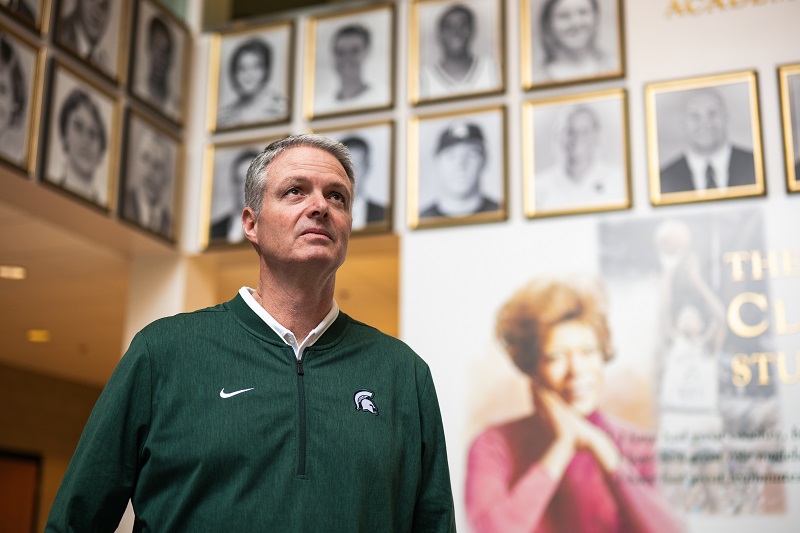
“All students go through it—college is a lot of pressure,” said Smith. “And with student-athletes, there’s a whole different set of pressures.”
The burden on college athletes can be relentless. The Smith Center offers a place to find support in almost every aspect of college life.
“It started out with a primary focus on improving academic performance and graduation rate,” said Todd Edwards. “Since then, we’ve grown well beyond academics in terms of career development, personal development and community service.”
Edwards, who has worked with Spartan athletes for the past 20 years, became executive director of student-athlete support services in 2017. Before that, Jim Pignataro served in the position for the majority of the center’s 25 years when he took over for Roger Grooters in 2002.
Welcome Home
Walking into the Clara Bell Smith Center, visitors are greeted by the hall of fame—a two-story photographic canvas featuring Michigan State’s 68 First Team Academic All-American Athletes (34 since the center opened). Its impact and mission are immediately clear—this place takes the student part of student-athlete seriously.
Each semester, the 31,000-square foot Smith Center welcomes 650 to 700 Spartan athletes from every sport. It houses a 210-seat auditorium, two study halls, two computer labs, classrooms, meeting areas, private tutoring spaces and a lounge. It has been known to sway recruits and quickly becomes a favorite hangout for its like-minded patrons.
“We have our athletic complexes in different places all over campus,” said Edwards. “But we only have one Student Athlete Support Services Center. This is the only facility where on any given day, any of our athletes from any of our sports might encounter any athlete from any other sport. It's very much a community builder.”
Spartan athletes embrace that community. They come together at the Smith Center for service projects, including annual food and toy drives and trick or treating events. And the Student-Athlete Advisory Committee, comprised of two representatives from each sport, meets regularly to organize and sponsor many of the center’s events.
Once a Spartan, always a Spartan
The Smith Center also was one of the first of its kind to serve former athletes returning to complete their degrees thanks to the George Webster Scholarship Fund. “Over the last 15 years, in addition to all the traditional students that have graduated, we’ve graduated nearly 50 former athletes from 10 different sports,” Edwards said.
As for Smith, he’s proud to look back on all that has happened in 25 years. “I think about when my mom's building first opened,” said Smith, “and all the kids that got a chance to graduate and then graduated with flying honors. I think of the confidence the network has instilled—getting students on the right path so they can go out in the world doing something they believe in.”
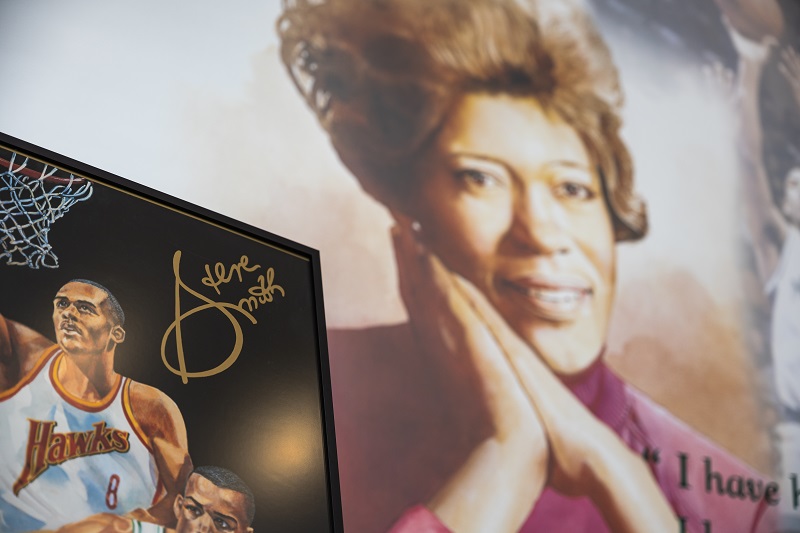
Smith calls it his mom’s building because that’s who he named it after. A fitting tribute to a woman who valued Steve’s accomplishments in the classroom as much as—maybe more than—what he did on the court.
“I'll see people in the airport, in my daily life, and they'll say, ‘thank you,’” said Smith. “To hear how much they say it helped them—that right there makes me extremely proud.
“And it keeps my mom’s name alive for a long, long time. That’s something special.”
Read on to find out what the Smith Center means to Spartan athletes.

“It felt like a catered experience toward my academic journey.”
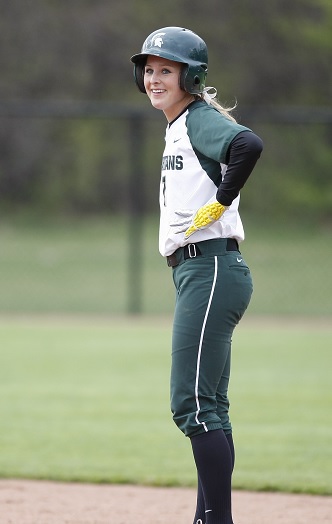
Brett (Williams) Kramer dreamed of attending a Big Ten university. As a highly decorated high school softball player out of Indiana with an impressive academic résumé, Kramer certainly had options.
When she made her recruiting visit to Michigan State, the choice was clear. To this day, Kramer calls her decision to become a Spartan one of the best of her life.
“From day one, I stepped on campus and felt like I was part of a family,” she said. "I took pride in wearing Spartans across my chest. It’s something I feel very grateful to be a part of because there is so much legacy at Michigan State.”
The Smith Center loomed large in the recruiting process and was a point of emphasis for former MSU head softball coach Jacquie Joseph. That aligned perfectly with the experience Kramer and her family were seeking.
“It was important that we had academic support and that we were truly the student part of the student athlete,” said Kramer. “It’s already hard managing an academic schedule in college. It’s even harder when you’re a full-time student athlete trying to be the best you can be on the field.”
At MSU, Kramer earned Academic All-Big Ten honors for three straight seasons. She was Academic All-District and a Big Ten Distinguished Scholar as a junior—a season she also excelled with the bat, finishing First-team All-Big Ten while ranking among the nation’s best in home runs and slugging percentage.
While Kramer was an accomplished student before coming to East Lansing, she never took for granted the academic resources provided by the Smith Center.
“It felt like a catered experience toward my academic journey,” she said. “I can’t think of a single student athlete that hasn’t gone through ups and downs in their careers both athletically and academically, but there were people who always kept your best interests in mind and were also your cheerleaders—even when you didn’t always believe in yourself.”
Brett (Williams) Kramer, ’12, is the director of Kicking the Stigma for the Indianapolis Colts where she leads an initiative to raise awareness around mental health disorders and illnesses.
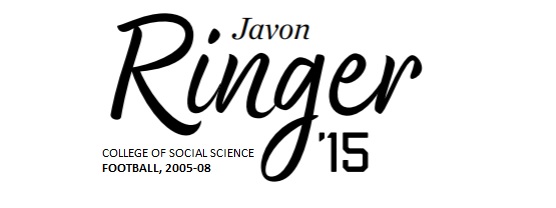
“There is no Plan A and Plan B, there’s Plan A and Plan A.”
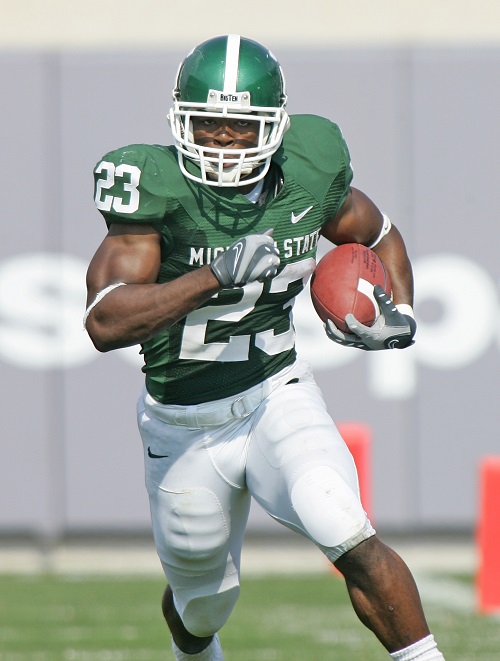
For Javon Ringer, it ended in an instant.
Injuries had plagued Ringer since being selected by the Tennessee Titans in the fifth round of the 2009 National Football League draft. But midway through his fourth season, a major knee injury ended his professional career.
Ringer never made it back on the field, but he did make it to the stage. He returned to MSU in 2015 to earn his sociology degree. All along the way, the Clara Bell Smith Center was the perfect partner for success.
“They want every player to get a chance at the NFL, but they put that same energy into academics,” said Ringer. “There is no Plan A and Plan B, there’s Plan A and Plan A. They go hand in hand with each other.”
Ringer had big athletic goals at MSU. He was a consensus All-American and earned First Team Big Ten honors in 2008 along with being a finalist for the Doak Walker Award given to the nation’s top running back. He ranks first in Spartan history in all-purpose yards and second in rushing yards.
The Smith Center also helped Ringer set and achieve significant academic goals.
“Coming out of high school, I had a pride issue. I didn’t like asking for help. I always wanted to do things on my own,” he said. “And when I struggled with certain things, I would try to hide it. But going to the Smith Center truly helped me get past my stubbornness and not feel shame in asking for help.
“And once you do ask for help–man, they’re able to supply you with so much of it.”
Ringer believes the impact of the Smith Center can never be overstated.
“Not everybody is going to make it to the NFL and even those who do, you never know when your career will end. I’m an example of that,” said Ringer. “But everybody can get an education and the Smith Center helps you get there. You can’t miss with that.”
Javon Ringer, ’15, works in recruiting and mentoring for MSU Football. He was a 2023 inductee into the Michigan State Athletics Hall of Fame.
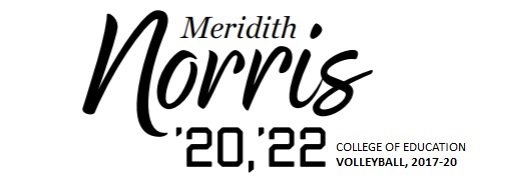
“It was an open space where I could go and be myself.”
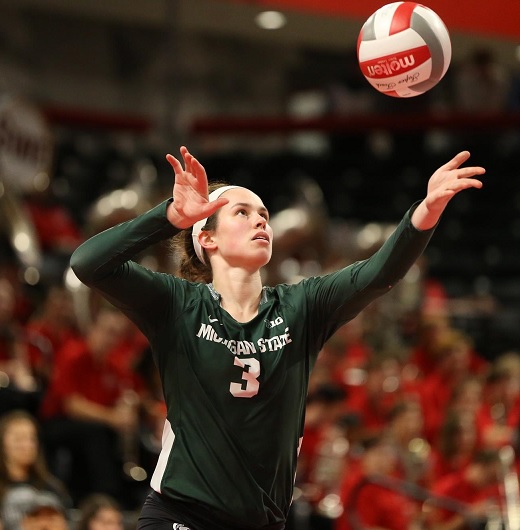
Meredith Norris stepped into the unknown.
Norris graduated a semester early from Corunna High School and, soon after turning 17, she started at Michigan State midway through the school year.
“That was a unique experience,” she said. “I came from a small rural school, so I wasn’t really sure what college was like.”
To ease the transition, Norris leaned on her teammates and coaches. She also had Mandy Chandler.
Chandler is the Director of Academic Services at the Smith Center with nearly two decades of experience guiding student athletes at MSU.
“I developed a long-lasting relationship with the people who worked there,” said Norris. “Mandy was like my second mom. I was there almost every single day, venting about life, volleyball and academics. It was an open space where I could go and be myself.”
Norris became a three-time Academic All-Big Ten honoree and two-time Big Ten Distinguished Scholar. The Smith Center was her home away from home—equal parts a quiet place to study, a source of motivation and a sense of community.
It was no surprise that Norris found herself back at the Smith Center as a graduate assistant after earning her bachelor’s in kinesiology. While pursuing her master’s, Norris worked in a variety of roles and discovered her passion. Today, Norris is the Tutorial Coordinator and Academic Coordinator for Women’s Volleyball, Men’s Cross Country, and Women’s Cross Country.
Years ago, the Smith Center helped Norris find her place. Now she strives to do the same for other student athletes.
“Whether they need a place to do homework or just want to hang out, my door is always open,” said Norris. “I’m happy to help with whatever they need and wherever they’re at in both their academic journey and their personal journey as a student athlete at Michigan State.”
Meredith Norris, ’20, M.S. ’22, is the tutorial coordinator at MSU’s Clara Bell Smith Center, working closely with the Women’s Volleyball, and Men’s and Women’s Cross Country teams.
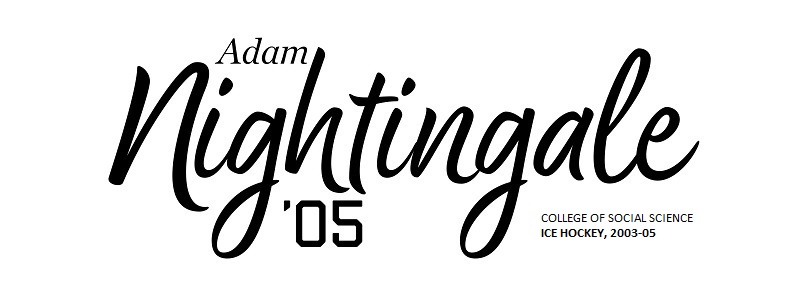
“You have to wear a lot of different hats.”
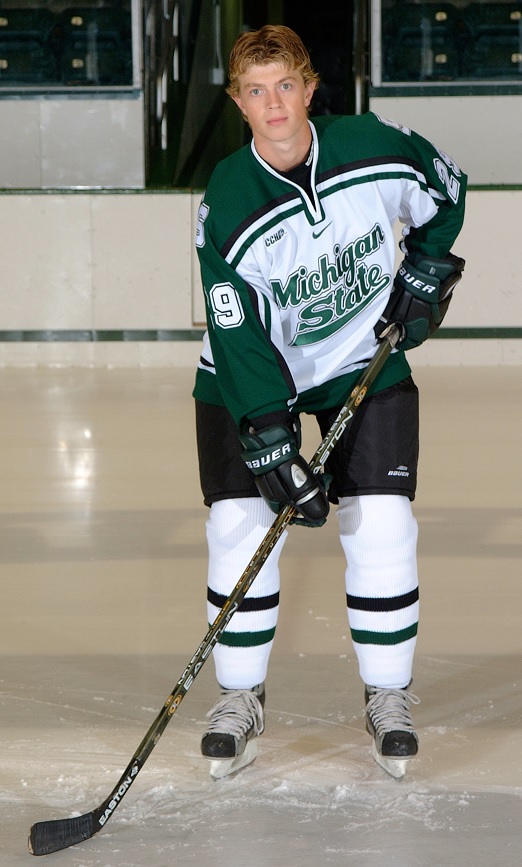
Adam Nightingale came to MSU from Lake Superior State in 2002 to play his last two years of college hockey. As a transfer student, rules of the era required him to sit out for a season. Right away, Nightingale had plenty of time to get acquainted with the Smith Center.
“It’s an unbelievable setup,” he said. “Coming from a smaller school, there's two things that really stood out: you're around like-minded people that are driven to be great in their sport and driven to be great in the classroom. But what really makes it special is the people that work there.”
These days, Nightingale interacts with the Smith Center in a different way: as Spartan hockey’s head coach.
Following the 2023-24 season, Nightingale’s second overseeing the team, he was voted Big Ten Coach of the Year and named a finalist for the Penrose National Coach of the Year. The Spartans won both the Big Ten Regular Season and Tournament championships and returned to the NCAA Tournament for the first time since 2012.
Also of note, this year’s team recorded the highest cumulative grade point average in program history.
“I’m just thankful to have this space where the guys can be around other student athletes that are motivated by their goals and dreams,” said Nightingale.
Before landing back at MSU, Nightingale’s career took him everywhere from professional hockey to teaching economics. He knows what it takes to make it in sports and beyond. “You have to wear a lot of different hats,” he said. “Understanding that, even if you make it, if you're looking for hockey to make you happy, it's going to fall short. You've got to have substance to your life. Doing things the right way, paying attention and being respectful—those are things that you can carry with you.”
Adam Nightingale, ’05, is head coach of the MSU men’s ice hockey team.

“The Smith Center opened up opportunities to build relationships.”
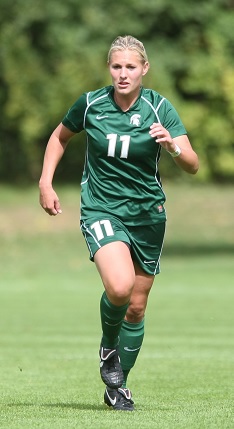
When Laura (Heyboer) Heethuis made herself eligible for the 2012 Women’s Professional Soccer Draft, she wasn’t sure what to expect. There was no spectacle, no party surrounded by family and friends. Instead, the Spartans’ all-time leading scorer tucked away into a private study room on the first floor of the Smith Center, finishing an assignment for one of her senior classes.
Watching the draft from her laptop, Heethuis spotted her name on the screen. She was drafted with the first pick in the fourth and final round—one of just 23 collegiate players selected that year.
It might seem a strange place to celebrate, but the Smith Center was more than just an educational resource for Heethuis. “It was a place that truly felt like home for me. A place I felt like I could go to,” she said. “The best thing about that place was the growth that happened there.”
That growth started and ended in the relationships she established at the Smith Center. Through classes, tutoring and advisors, Heethuis developed an indispensable network.
“I utilized every bit of the center and it was the best thing that could’ve happened for me,” she said.
“The Smith Center opened up opportunities to build relationships and really figure out where I was being led and what I liked.”
Heethuis joined MSU’s Hall of Fame in 2022. She was an All-American three years in a row, four-time First Team All-Big Ten and the 2008 Big Ten Freshman of the Year. But, for Heethuis, the top honor was being named First Team Academic All-American as a senior.
“There are so many hours you pour into your sport, but sometimes people forget what it takes to get the job done in the classroom,” she said. “I knew soccer wasn’t going to be my forever job. I had to put in the work academically to know I was setting myself up for success in the future.”
Laura (Heyboer) Heethuis, ’13, is a sales professional with BSN Sports in Portage, Mich. She played two years of professional soccer and spent seven as head women’s soccer coach at Waynesburg University in Pennsylvania.
Authors: Ryan Loren, Tim Cerullo, '08

